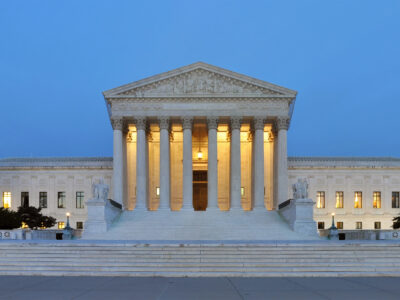Bush-era EPA § 404 veto survives judicial review

A federal court in Mississippi has rejected a legal challenge to EPA’s 2008 veto of a Clean Water Act § 404 permit for the Yazoo Pumps flood control project. (Hat tip: PLF Liberty Blog.)
The Yazoo Pumps project was an anachronism, even by pre-environmental era standards. (This brief history of the project is based on the court’s opinion.) In the 1940s, Congress authorized a flood control project which would protect populated and agricultural areas at elevations more than 90 feet above sea level from flooding. Lower-lying areas, which were deemed unsuitable for agriculture, were not to be protected.
But farmers didn’t stop trying to drain wetlands, or demanding that the government protect their ill-conceived investments in doing so. By the 1980s, the Corps of Engineers was recommending that the project be revamped to dry up additional lands. Construction on those modifications actually began in 1986, but was halted when the federal government demanded that locals share 25% of the costs. That sensible decision was reversed in 1996 (can you say “pork barrel”?), but by then EPA had started to think about ways to manage flood plains without destroying the environment or encouraging conversion of marginal lands to agriculture.
EPA’s veto wasn’t heavy-handed, nor did it come out of the blue. EPA engaged in protracted negotiations with the Corps of Engineers over ten years, trying to reach agreement on a less environmentally damaging alternative. Finally in 2008, after inviting comment, holding a local public hearing, informing members of the state’s congressional delegation, and consulting one last time with the Corps and local officials, EPA vetoed the Corps’ approval of the project. It was the first veto since 1989, delivered by an administration not exactly known for rabid environmentalist leanings.
The basis of EPA’s veto was a conclusion that the project would cause unacceptable (and unnecessary) environmental damage. EPA found that it would
significantly degrade the critical ecological functions provided by approximately 67,000 acres of wetlands in the Yazoo Backwater Area, including those functions that support wildlife and fisheries resources.
The Board of Mississippi Levee Commissioners challenged EPA’s veto, but not its conclusions about the extent or avoidability of environmental harm. The legal claim was based on an obscure provision of § 404 which exempts from regulation any “Federal project specifically authorized by Congress” if an environmental impact statement detailing the effects of the project is submitted to Congress before the authorization. In other words, the Levee Board was arguing that no permit was ever required because Congress approved the project with full information about the consequences. After reconstructing in detail the project paper chase from the 1980s, the reviewing court determined that the EIS prepared for the pumps project was not submitted to Congress. and therefore the exemption did not apply.
Based on a quick Westlaw search, this decision brings EPA’s record to a round 4 – 0 in cases challenging vetoes of § 404 permits. Not a bad record, considering there have only been 13 vetoes. All of these cases are different, of course, but maybe there’s a general message here that EPA doesn’t need to be looking over its shoulder for lawsuits when it decides whether or not to exercise its veto. And maybe plaintiffs challenging the most recent veto, of the Spruce Mine mountaintop removal permit, shouldn’t count on a litigation victory.
Reader Comments
2 Replies to “Bush-era EPA § 404 veto survives judicial review”
Comments are closed.






Dear Holly,
The EPA should not have veto authority over the Corps of Engineers’ wetlands permits because there is no good justification for having two large federal agencies both regulating wetlands. The EPA should get out of the wetlands regulation business altogether and leave this job to the Corps.
On another subject, there is renewed hope for a government shut down this coming Friday but I am hesitant to get my hopes up. If this happens, then the EPA should remain in the shut down mode until it agrees to abandon regulation of carbon dioxide and wetlands.
Holly, I really appreciate your detailed posts. Not a lawyer, sometimes it’s a bit over my head, but I generally learn a lot.
You’ve written on ESA issues. Did you hear that the budget deal removed the gray wolf from the Act? Supposedly a first. A downer after all the virtual high-fives celebrating our (the environmental community’s) good defense in blocking the Republican riders. What else is in that deal? And what’s up ahead? I still think Obama will sell out MTR, will sell out the EPA over air toxins or regulating cement plants and give ground on EPA regulaton of GHG’s. Obama has one priority right now: Obama ‘012.
Sorry about the rant.